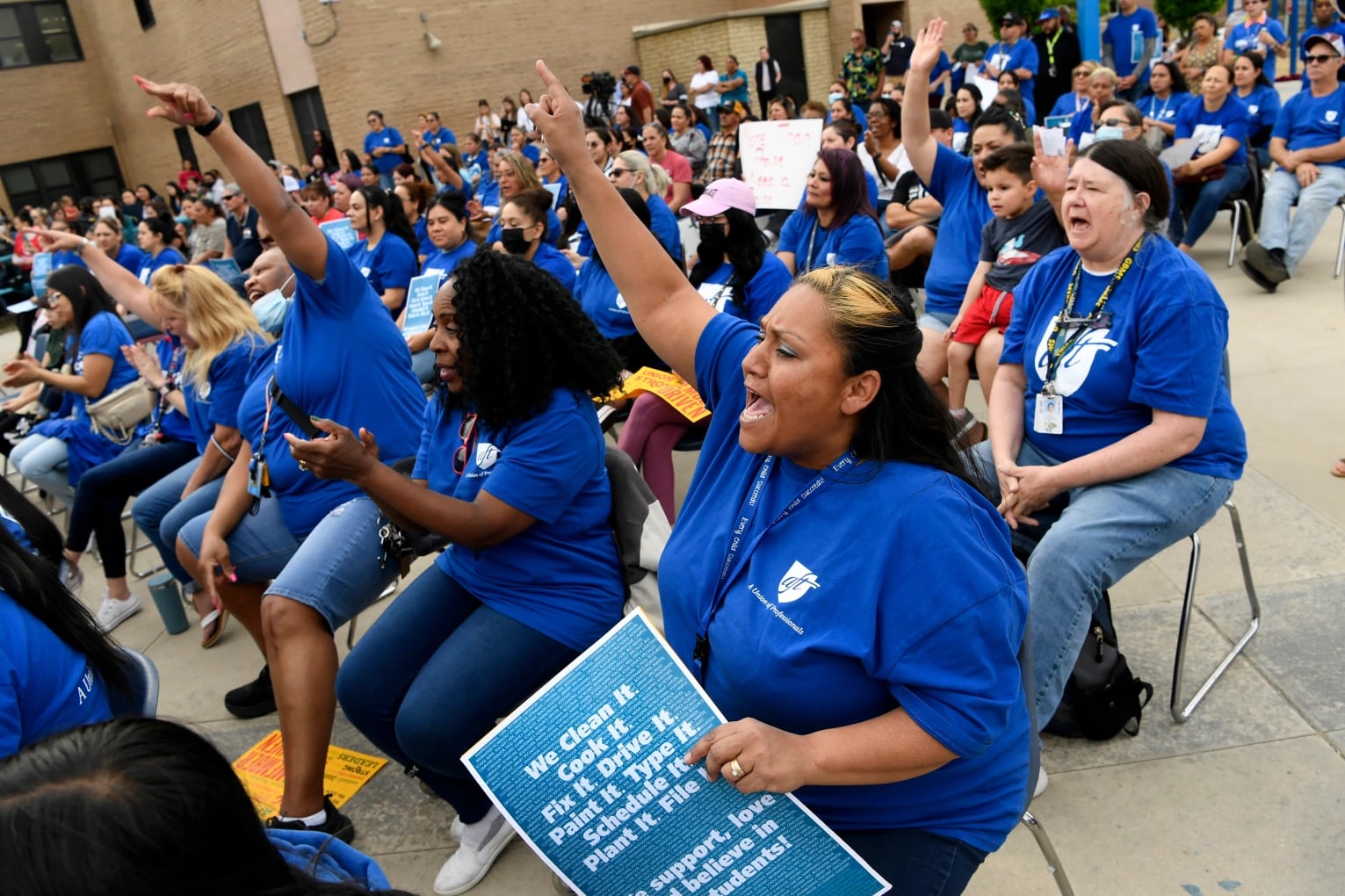Asking for a “fair, livable wage,” a collective of unions representing Denver school custodians, food service workers, paraprofessionals, and other support staff have floated a proposal: an $18 an hour increase to every worker’s salary and 5% cost-of-living raises each year.
The lowest-paid workers in Denver Public Schools earn $15.87 an hour, which is the city’s minimum wage. Under the unions’ proposal, those workers would make $33.87 an hour.
District officials did not accept the proposal, which the unions presented last month. Instead, they told union leaders this week that the district is working toward a $20 an hour minimum wage over three years.
Superintendent Alex Marrero, who told a Denverite reporter he struggles to pay rent even with his $260,000 salary, recently said he plans to use some of the $9 million savings from job cuts in the central office to raise the district’s minimum wage.
“There is serious consideration to moving the minimum wage to higher than what it currently is,” Miguel Perretta, the district’s senior director of people experience, said at a bargaining session with the unions Tuesday. “We just need a little bit more time.”
The district’s hourly workers can’t wait, union leaders said. Workers are turning to social services for help with groceries, rent, and health care. They’re taking the bus to work because they can’t afford gas for their cars. Many have been priced out of Denver. They’ve held rallies to tell stories of how their children qualify for free school lunches because they earn so little.
Facility Managers Association President Michael Potter said he walked into a school to find a custodian crying as she cleaned the floor because she was worried about losing her house.
Rather than make $15.87 an hour at Denver Public Schools, many workers are leaving for jobs paying $19 an hour at Wendy’s or $24 an hour at Target, leaders said.
“I have heard of so many people, why they left is because they have to choose between rent and food,” said Bernadette Jiron, president of the Denver Federation of Paraprofessionals and Nutrition Service Workers. “We need to be respected.”
The debate is unfolding as Denver and other school districts struggle to fill many critical support positions and inflation puts more pressure on workers.
Chuck Carpenter, the district’s chief financial officer, said Denver Public Schools must balance paying workers a fair wage with passing a responsible budget. Colorado funds school districts based on enrollment, and Denver’s enrollment is declining, which means less revenue.
“We want to have a fair agreement and it has to be in a way that’s financially responsible,” said Carpenter. He estimated the cost of the unions’ proposal at $109 million to $116 million, which would more than double what the district currently spends on the workers’ salaries.
To get to $20 an hour over three years would cost a total of more than $25 million, Carpenter said. He framed raising the minimum wage as both important and “a financial risk.”
Union leaders said they view it differently.
“It’s not a financial risk to ensure the best support staff are available to our students to work in our schools every day,” Jiron said.
She and others continually stressed that they want a livable wage, not a minimum wage. Perretta, in turn, emphasized the district wants to provide a competitive wage.
“There’s a difference of opinion as to what a livable wage is,” he said.
Raising the district’s minimum wage has been a priority of board Vice President Tay Anderson, who previously worked as a paraprofessional. Just three years ago, the district’s minimum wage was $12.50 an hour. The school board passed a resolution to raise it to $15 an hour by 2023. But a separate resolution passed by the Denver City Council, that also applies to the district, raised the city’s minimum wage to $15 by 2021. It’s currently $15.87.
About 1,200 Denver Public Schools employees earn $15.87 an hour, Marrero said recently. It’s the starting salary for certain paraprofessional, custodian, and food service jobs. Building, grounds, and warehouse workers earn a minimum of $15.93, campus safety officers earn a minimum of $19.31, and facility managers earn a minimum of $21.77.
Melanie Asmar is a senior reporter for Chalkbeat Colorado, covering Denver Public Schools. Contact Melanie at masmar@chalkbeat.org.






